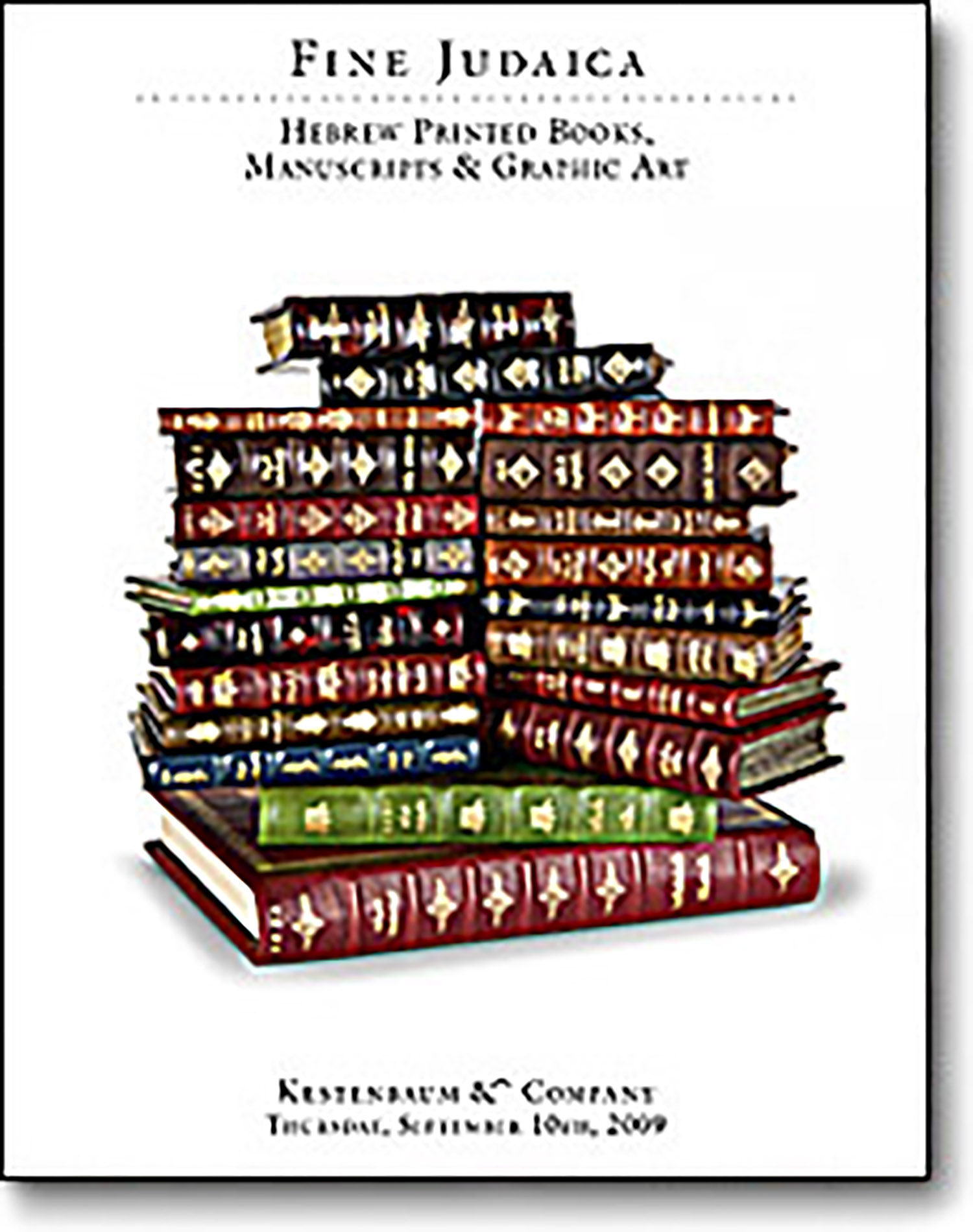Sepher HaShorashim [“Book of Roots”: a Biblical lexicon and grammar].

AUCTION 46 |
Thursday, September 10th,
2009 at 1:00
Fine Judaica: Hebrew Printed Books, Manuscripts, & Graphic Art
Lot 197
KIMCHI, DAVID
Sepher HaShorashim [“Book of Roots”: a Biblical lexicon and grammar].
Naples: Joshua Solomon Soncino 1491
Est: $10,000 - $15,000
PRICE REALIZED $10,000
THE MOST INFLUENTIAL LEXICOGRAPHICAL WORK FOR THE STUDY OF HEBREW.
The formation of Hebrew grammatical rules was essential to facilitate the study and understanding of the Bible. Kimchi's Shorashim with it’s “very rich collection of lexicographic material…increased the knowledge of the Hebrew language. This he accomplished with numerous new etymologies as well as new comparisons with post-Biblical Hebrew.” (Bloch). The popularity of the work is evident from the fact that two editions appeared in Naples within a period of five months.
This 1491 edition was not censored, unlike that of 1490, where blank spaces were left rather than include Kimchi's comments that seek to disprove the Christian mistranslation of Isaiah 7:14 and its related Christological reference. The present 1491 edition has preserved this passage, although in the present copy the offending lines were expunged by the Church censor - and later restored in an old Hebrew hand. See G.Cohen, Hebrew Incunabula in the Library of Yeshiva University (1984), p. 87.
The Hebrew Press at Naples had a short but distinguished existence. Founded in 1486 by Germans, Joshua Solomon Soncino followed his workers there toward the close of the 1480's and at least four of Soncino’s publications are known to have been produced in Naples. No doubt he and his fellow craftsmen in Naples would have continued to produce good books, but the press of Naples was silenced by the problems arising from the expulsion of the Jews from Spain and the calamitous political events of 1492. After an influx of migrant Spanish Jews, Naples suffered a severe plague, followed by the tyranny of Charles VIII of France. Thereafter, the entire Jewish community at Naples was dissolved. Whether Joshua Solomon Soncino died in the tumult or fled is unknown. See EJ, Vol. X, col. 1002; D.W. Amram, The Makers of Hebrew Books in Italy (1963), pp. 63-69; J. Bloch, Hebrew Printing in Naples.
